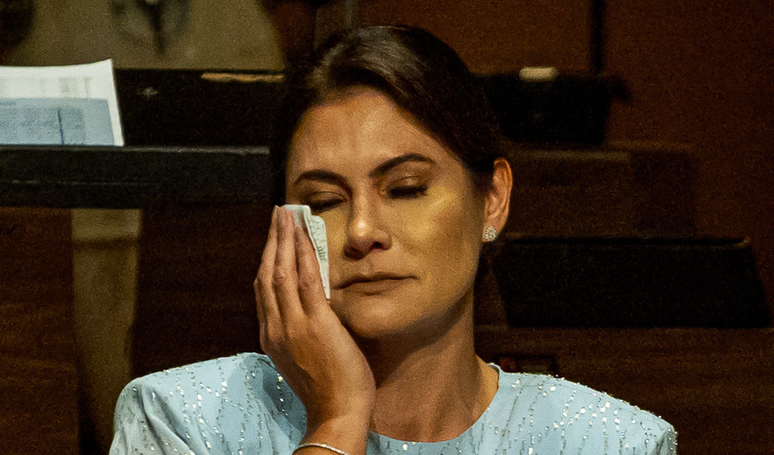Important habits go beyond maintaining a balanced diet and practicing physical activity; learn how to include all treatments in your routine
THE aging it is a global phenomenon: in about three decades, the number of elderly people will be equivalent to that of children in the world, according to estimates by World Health Organization (WHO). In Brazil, data released of the Brazilian Institute of Geography and Statistics (IBGE) underline that the age pyramid has already begun to invert: in 2022, for the first time, the elderly no longer represent the smallest slice of the population, but represent 15.8% Brazilians, surpassing young people between 15 and 24 years old (14.7%).
Over the next 20 years, IBGE predicts that people over 60 will make up almost a third of Brazilians (28%) and represent the largest share of the population. If we think about the next 50 years, Brazil will have a percentage of elderly people equal to 37.8%, or one in three Brazilians.
In this scenario, the search for healthy aging and a better quality of life is increasingly important. Below, discover 10 health precautions that every elderly person should take.
1. Have a balanced diet
A balanced diet is essential for healthy aging. THE food of the elderly person should be varied, giving priority to the ingredients in nature (vegetables, greens, beanrice, roots, egg and meats) or minimally processed. These people should consume as little as possible ultra-processed foods, i.e. products with additions sugarfats, dyes and preservatives.
“When purchasing processed foods, the recommendation is to always prefer those with fewer items in the list of ingredients”, advises nutritionist Mariana Staut Zukeran, PhD in science and specialist in gerontology, who coordinates the Postgraduate Course in Nutrition in Gerontology at the Faculdade Einstein. When you look at the label, remember that the components appear in order from largest to smallest quantity. This means that if “sugar” is first on the list, for example, it is the main ingredient of that product.
At this stage of life, protein intake should also receive more attention. This is because, as we age, there is a loss in the maintenance and formation of muscle mass. “The recommendation for protein consumption is higher for older adults and individualization must be carried out by the professional who accompanies them,” emphasizes Zukeran.
You also need to be aware of possible cases of nutritional deficiency. Several factors can influence the appetite of the elderly, such as illnesses, medications, feelings of hunger loneliness and also the changes in taste and smell that occur during maturation.
That’s why it’s important to pay attention to possible changes in eating patterns. “Some factors are important for this monitoring, such as self-perception of appetite, the taste of the food, the number of bites or spoonfuls before finishing the meal and the number of meals consumed per day,” explains the nutritionist. “Changes in food consumption and weight loss are important indicators to seek out a nutritionist who specializes in this area.”
6. Be careful when using medications
The negative effects of drugs they can affect the elderly population more, especially those with poorer health conditions. At this age, people may have more than one chronic disease, which increases the risks of drug interactions.
For this reason it is very important to be followed by a geriatrician, who will be able to carry out an optimized evaluation of the drugs: if they are used correctly, at the right dosage, if the objective has been achieved and if there is no interaction between them. “Our intention is to make the treatment as safe and optimized as possible, also including the prescription of some drugs, which is not uncommon in geriatrics”, reports Leonardo Oliva.
7. Maintain social activity
When talking about the health of the elderly it is necessary to think beyond the treatment of diseases. Encouraging participation in social activities is essential for emotional and physical well-being, as well as improving self-esteem and a sense of belonging. Studies show that older adults who regularly participate in social activities tend to have a mental health more robust and larger longevity.
These engagements can range from informal meetings to planned events, such as parties, sewing and embroidery classes, movie sessions and group walks.
“There is no doubt about the importance of carrying out group activities. We saw the importance of socialization during the pandemic, when we saw the elderly population becoming seriously ill due to social isolation”, observes the geriatrician.
8. Take care of your mental health
Often, the mental health of older adults can be overlooked in medical care, either because the patient does not feel comfortable talking about it or because the professional does not delve into these issues. But the WHO itself states: “Health is a state of complete physical, mental and social well-being, and not simply the simple absence of disease or infirmity.”
Mental health includes both cognition/memory and anxiety/depression. When evaluating the cognitive abilities and memory of an elderly person, it is necessary to try to understand if he has any kind of problem in this regard, since the main risk factor for the onset of dementia is age.
“But there cannot be the prejudice that growing old means having cognitive deficits and forgetfulness. Many people age with full mental functioning and with preserved cognitive abilities”, underlines Oliva. However, this does not mean that we should think that forgetfulness is something normal. “It is necessary to investigate the causes and propose, if applicable, an adequate treatment,” says the doctor.
When evaluating the existence of anxiety and depression, situations that are quite common in old age, particular attention must be paid. “These are disorders that lead to a loss of quality of life and existing pharmacological treatments are effective, they need to be offered and carefully monitored in order to improve the health of the elderly in the most comprehensive way possible”, assesses the doctor.
9. Keep your vaccination record up to date
Vaccination of people over the age of 60 is very important because in this age group infectious diseases tend to be more serious, as is mortality due to these conditions. “It is known that our life expectancy has increased in recent years. Vaccines not only prevent the disease and its outcomes, but also allow the extra years we gain with increased life expectancy to go along with quality of life”, underlines infectious disease specialist Isabella Ballalai, director of the Brazilian Society of Immunizations (SBIm).
The Ministry of Health makes some routine vaccinations available for this age group within the National Immunization Program (PNI). They are: the flu vaccine, which must be taken every year; bacterial duo (diphtheria and tetanus); hepatitis B; yellow fever (for those at risk) and Covid-19.
SBIm and SBGG have a specific vaccination schedule recommended for people over the age of 60. “Unfortunately, many of these vaccines are not yet available in the calendar of the Unified Health System (SUS), through the National Immunization Program (PNI),” laments Ballalai. Among these is the bacterial triplet, which protects against diphtheria, tetanus and whooping cough. “We are experiencing a recent whooping cough epidemic and the disease is most severe in people over the age of 60,” warns Ballalai.
10. Also pay attention to the health of your mouth
With all precautions to prevent and promote oral healthseniors age with more teeth. Therefore, it is essential to maintain adequate oral hygiene on a daily basis and adapted to the possible limitations that arise with advancing age.
“Many oral problems can occur or worsen in this stage of life, such as periodontal disease, xerostomia, which can be accompanied by a reduction in salivary flow and its protective capacity, tooth decay and opportunistic infections,” explains dentist Letícia Bezinelli , coordinator of the degree course in Dentistry and head of the hospital dentistry service at the Israelita Albert Einstein Hospital.
Oral health is also directly related to overall and systemic health. According to Bezinelli, several studies have demonstrated the association between periodontal disease and diabetes, heart disease and dementia. “Taking care of the oral health of the elderly therefore means taking care of their health as a whole,” he says.
In the case of those who use dental prostheses, the device must be cleaned two or three times a day, with an extra soft toothbrush and non-abrasive paste or neutral soap, to avoid scratches on its surface. Other options are 2% sodium hypochlorite solution or specific tablets. “It is also necessary to clean the oral cavity without dentures, lightly brushing the tongue, palate, gums and cheeks with an extra soft toothbrush to remove food residues, bacterial plaque and biofilm,” explains Henriques.
After the age of 60, visits to the dentist should become more frequent, every four to six months, so that a periodic evaluation can be carried out. It is important to remember that medications for continuous use and systemic diseases must always be informed to the dentist so that the treatment is complete and appropriate for each patient.
Source: Terra
Ben Stock is a lifestyle journalist and author at Gossipify. He writes about topics such as health, wellness, travel, food and home decor. He provides practical advice and inspiration to improve well-being, keeps readers up to date with latest lifestyle news and trends, known for his engaging writing style, in-depth analysis and unique perspectives.








